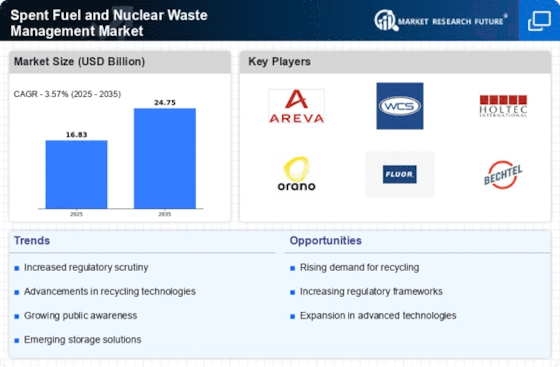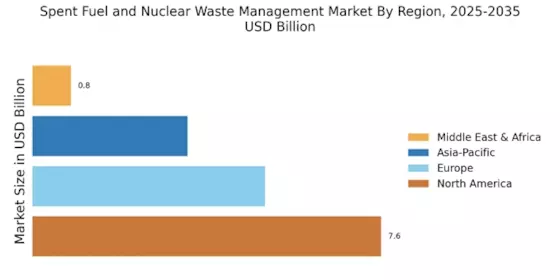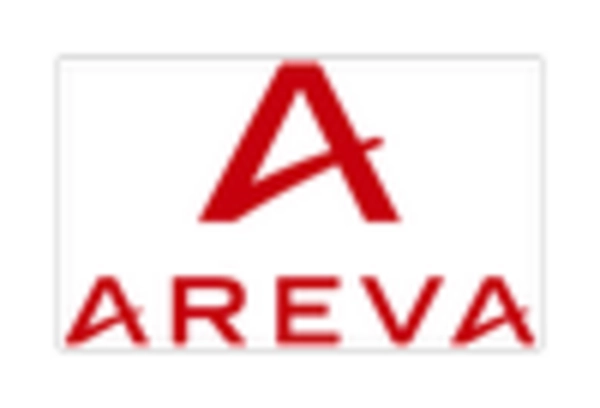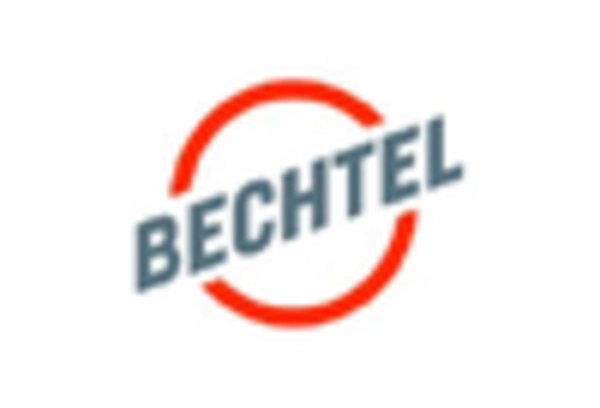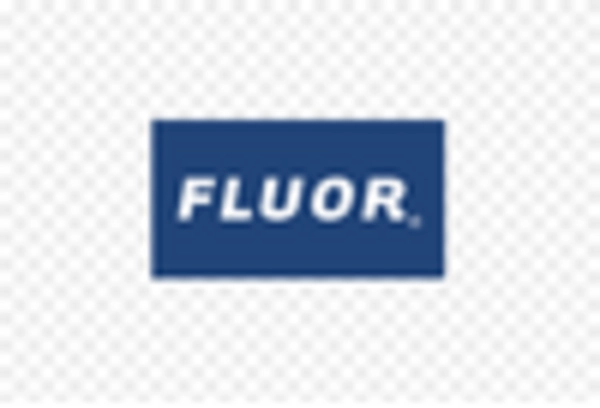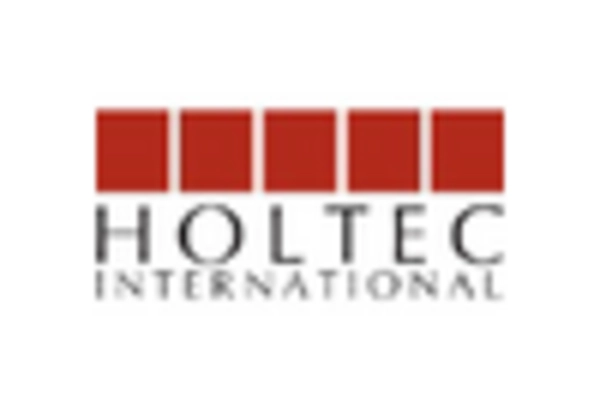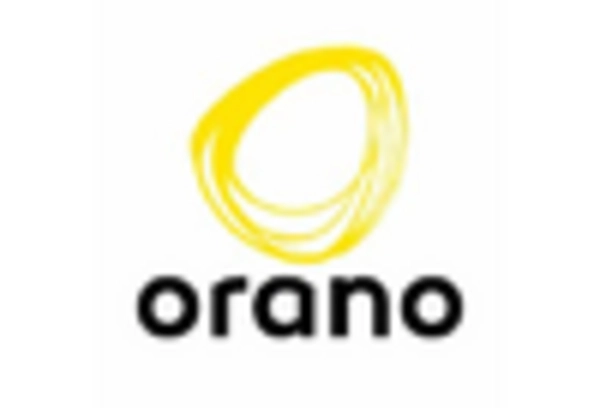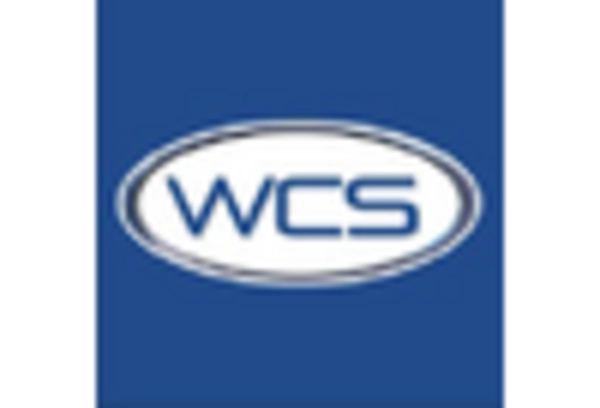Increased Nuclear Energy Production
The rising demand for nuclear energy as a clean and efficient power source is a key driver for the Spent Fuel and Nuclear Waste Management Market. As nations seek to reduce carbon emissions and transition to sustainable energy sources, the reliance on nuclear power is likely to grow. This increase in nuclear energy production correlates with a higher generation of spent fuel, necessitating effective waste management strategies. According to estimates, the global nuclear energy capacity could increase by 25% by 2030, thereby amplifying the need for robust waste management solutions. Consequently, this trend is expected to propel the Spent Fuel and Nuclear Waste Management Market forward.
Regulatory Compliance and Safety Standards
The Spent Fuel and Nuclear Waste Management Market is heavily influenced by stringent regulatory frameworks and safety standards established by governmental bodies. These regulations are designed to ensure the safe handling, storage, and disposal of nuclear waste. As countries continue to develop and enforce these regulations, the demand for advanced waste management solutions is likely to increase. For instance, the International Atomic Energy Agency (IAEA) has set guidelines that many nations adopt, which could lead to a projected market growth rate of approximately 5% annually. Compliance with these regulations not only enhances safety but also fosters public trust, thereby driving investments in the Spent Fuel and Nuclear Waste Management Market.
Public Awareness and Environmental Concerns
Growing public awareness regarding environmental issues and the implications of nuclear waste is influencing the Spent Fuel and Nuclear Waste Management Market. As communities become more informed about the potential risks associated with nuclear waste, there is an increasing demand for transparency and accountability from nuclear operators. This shift in public perception is prompting governments and companies to invest in more effective waste management solutions. Surveys indicate that over 70% of the population supports enhanced safety measures in nuclear waste management, which could lead to increased funding and innovation in the sector. Thus, public sentiment is likely to play a crucial role in shaping the future of the Spent Fuel and Nuclear Waste Management Market.
Technological Advancements in Waste Management
Innovations in technology play a pivotal role in shaping the Spent Fuel and Nuclear Waste Management Market. Advanced methods such as deep geological repositories and partitioning and transmutation technologies are emerging as viable solutions for long-term waste management. These technologies not only aim to reduce the volume and toxicity of nuclear waste but also enhance the efficiency of waste processing. The market for nuclear waste management technologies is expected to reach USD 10 billion by 2027, reflecting a growing recognition of the need for sustainable solutions. As these technologies evolve, they may significantly alter the landscape of the Spent Fuel and Nuclear Waste Management Market.
International Collaboration and Knowledge Sharing
International collaboration among countries and organizations is emerging as a significant driver in the Spent Fuel and Nuclear Waste Management Market. As nations face similar challenges related to nuclear waste, sharing best practices and technological advancements becomes essential. Initiatives such as the Nuclear Waste Management Organization (NWMO) promote knowledge exchange and collaborative research, which can lead to more effective waste management strategies. This cooperation may also facilitate the development of standardized protocols, enhancing safety and efficiency across borders. The potential for shared resources and expertise could result in a more cohesive approach to nuclear waste management, thereby positively impacting the Spent Fuel and Nuclear Waste Management Market.


